Counting practice Extra Challenge Addition & Subtraction Worksheets for Ages 6-7
6 filtered results
-
From - To
Introduce an exciting way to boost your child's math skills with our Counting Practice Extra Challenge: Addition & Subtraction Worksheets! Aimed at ages 6-7, these worksheets offer engaging exercises designed to enhance counting, addition, and subtraction abilities. With a variety of fun and challenging problems, your child will develop confidence and improve their numerical fluency. Perfect for use at home or in the classroom, these worksheets support foundational math learning in an enjoyable manner. Help your child excel and build a strong mathematical foundation today with our expertly crafted worksheets!
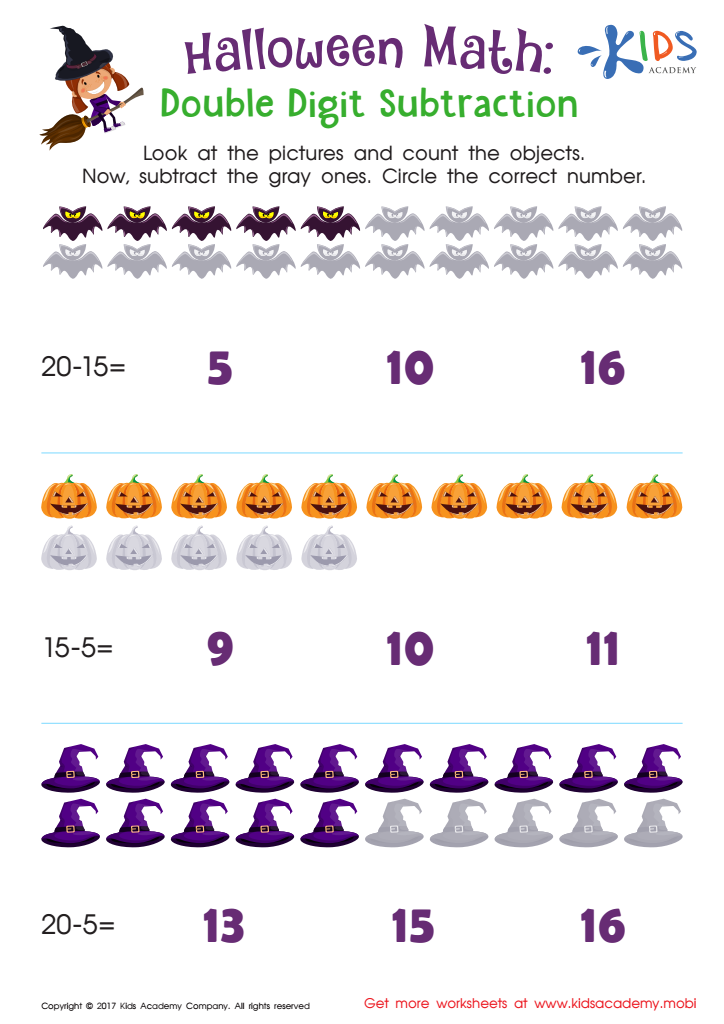

Halloween Math Subtraction Worksheet
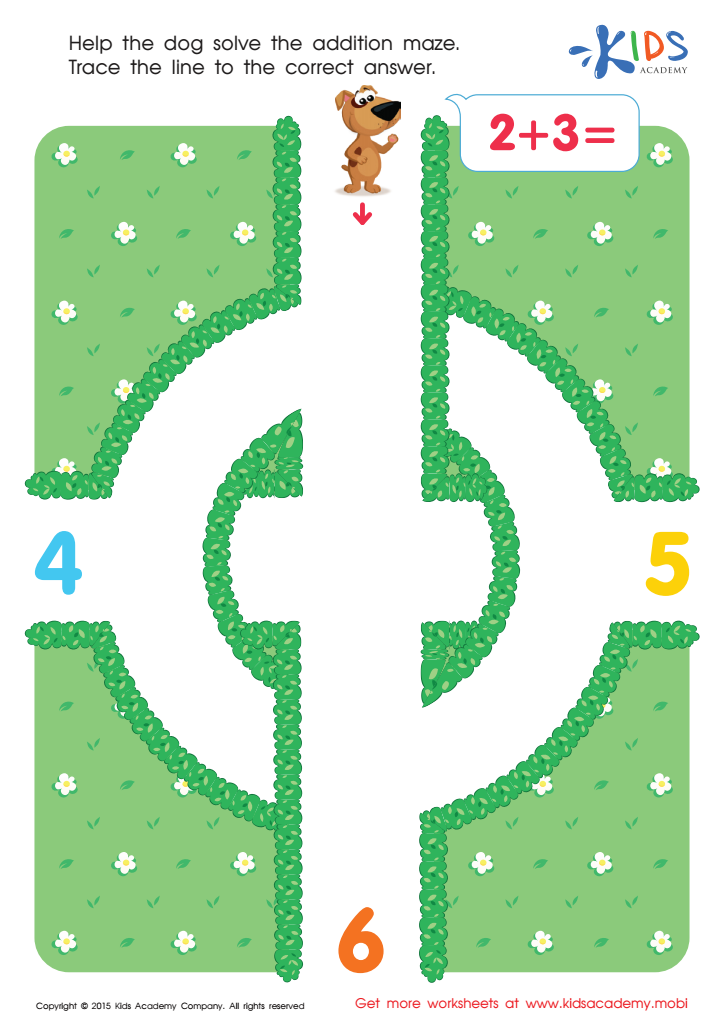

Two And Three Addition Worksheet
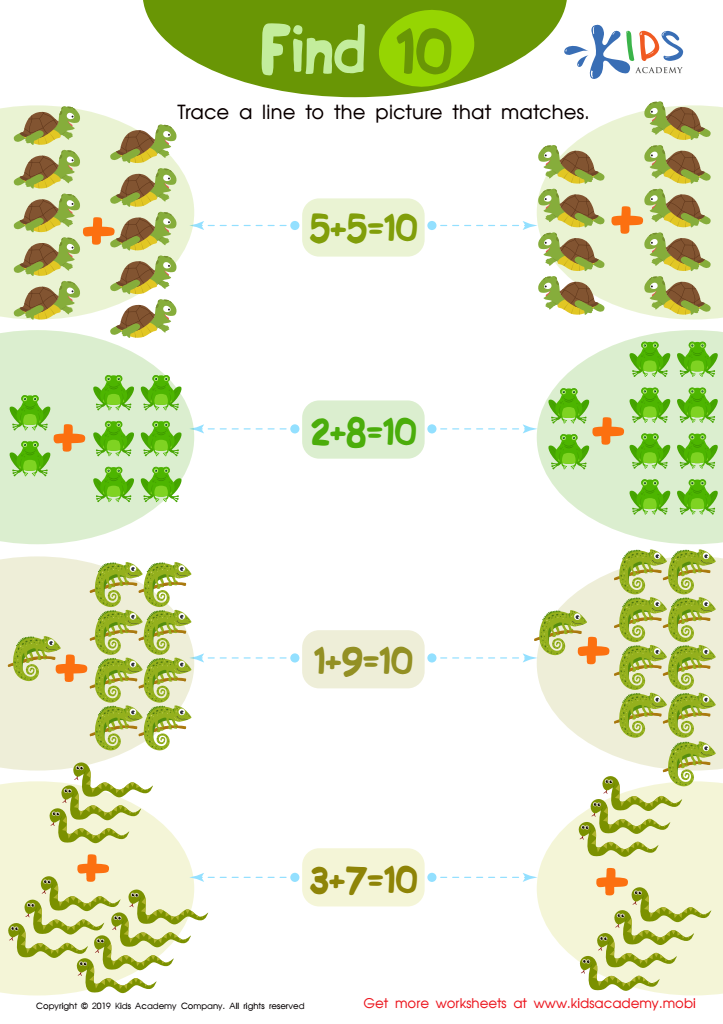

Find 10 Worksheet
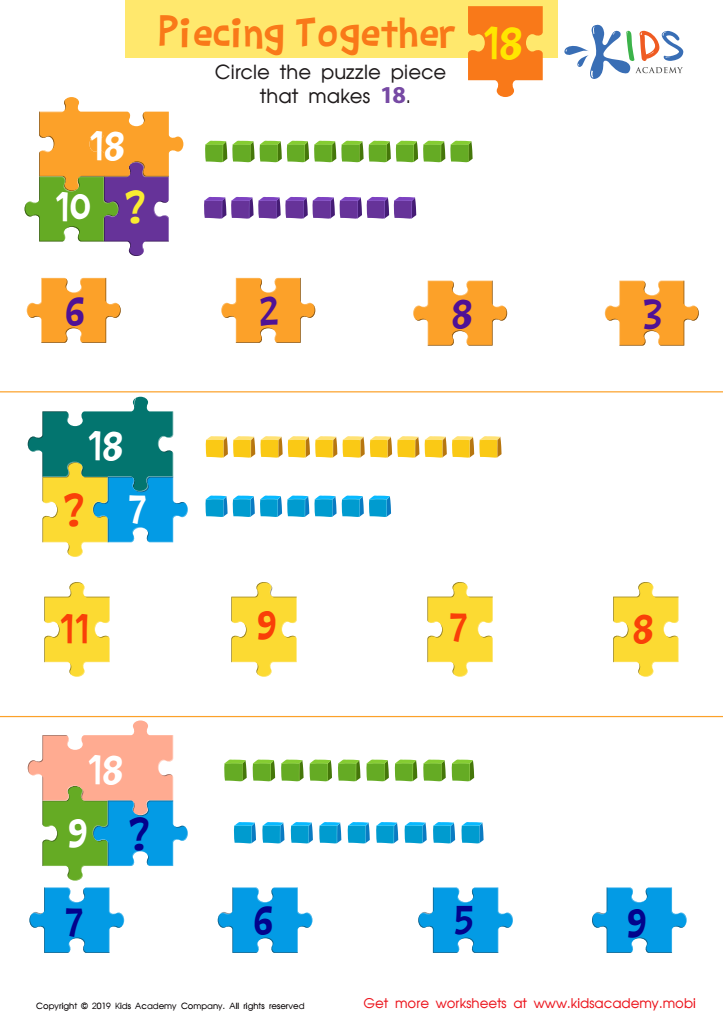

Piecing Together 18 Worksheet
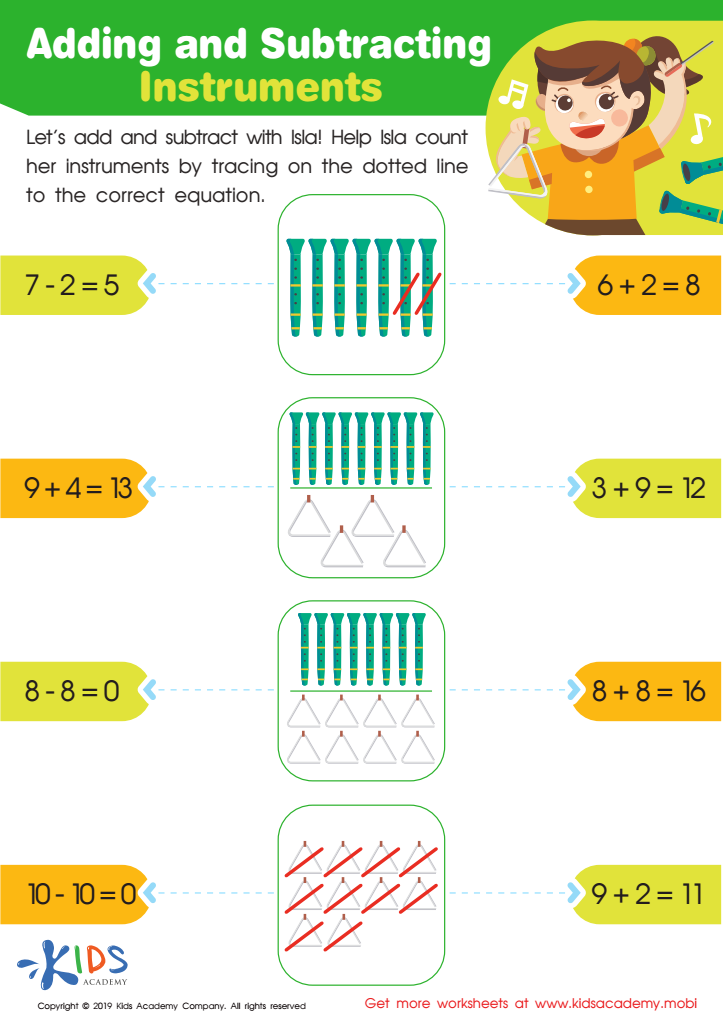

Adding and Subtracting: Instruments Worksheet
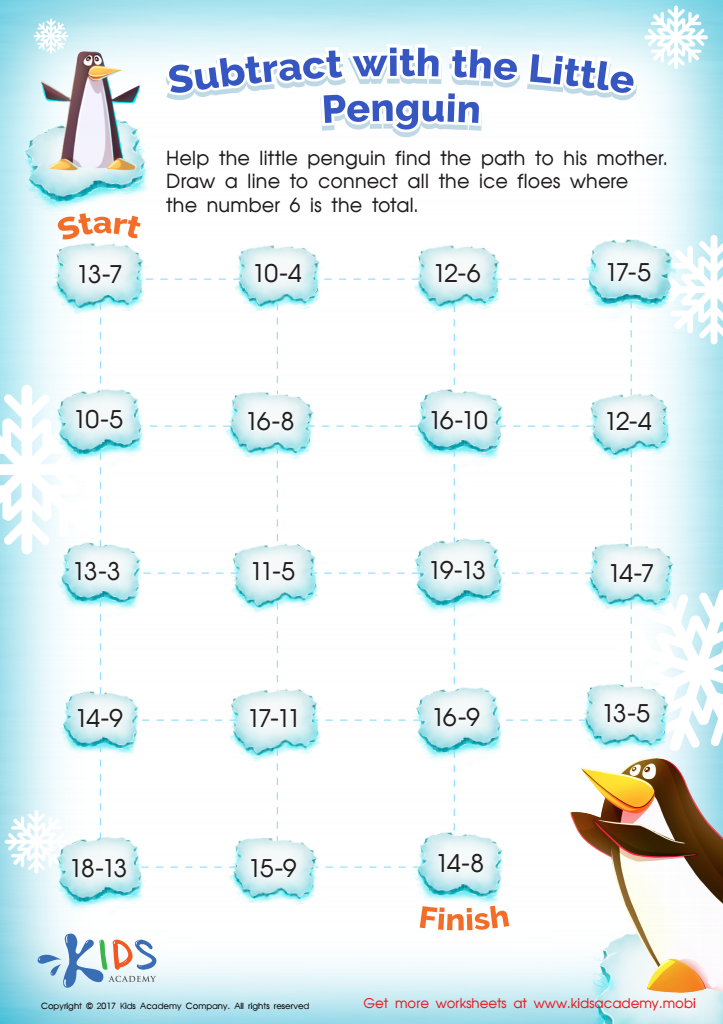

Subtract With The Little Penguin Substraction Worksheet
Counting, addition, and subtraction are foundational math skills that set the stage for future academic success and everyday problem-solving. For children ages 6-7, practicing these skills through engaging activities and challenges can significantly enhance their understanding and proficiency.
Firstly, mastery of basic arithmetic boosts a child's confidence and interest in math. This confidence can reduce anxiety around the subject, promoting a positive attitude toward learning. Consistent practice allows children to internalize these concepts, making it easier for them to tackle more complex mathematical problems later.
Secondly, these fundamental skills are crucial for cognitive development. Counting practice and arithmetic exercises improve a child's number sense -- their intuitive understanding of numbers and their relationships. This includes developing skills such as recognizing patterns, estimating, and logical reasoning, which are vital for other academic subjects and everyday tasks like time management and money handling.
Moreover, early proficiency in arithmetic promotes better performance in standardized tests, where math is a significant component. Early extra challenges ensure children are not just meeting, but exceeding grade-level expectations, which can set a strong academic foundation.
Parents and teachers play critical roles in nurturing these skills by providing supportive and stimulating environments, using tools such as educational games, interactive lessons, and real-world math scenarios to make learning enjoyable and relevant.
 Assign to My Students
Assign to My Students





















